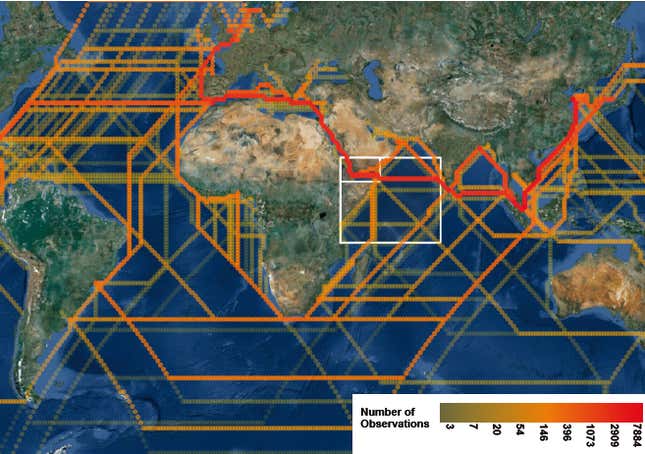
The surge in piracy off Somalia that began in 2008 has cost global consumers as much as $3.3 billion annually, including an 8% increase in shipping costs, according to European researchers. But for all that, Somali pirates only gain about $120 million in net yearly revenues, suggesting that their effort to profit from their proximity to the world’s shipping is hugely inefficient.
The costs incurred due to Somali pirates include ransoms, armed guards on ships, the purchase of newer ships that ride higher in the water, and taxes paid to fund the international naval armada that is currently patrolling the Gulf of Aden and striking against pirate sites on the shore. But despite the display—and a reduction in pirate attacks—it’s not clear that the piracy problem has really been solved.
Indeed, while the researchers recognize that there have been some benefits from the measures taken so far, a far more effective method to stop piracy would be if Somalia simply had a functioning government, capable of providing some kind of basic law enforcement. But the researchers find that even a shipping tax (pdf) would be a more effective form of redistribution:
[A] conservative estimate of the costs of piracy to the shipping industry is about $1.3 billion. We use wage data from the Somali Food Security and Nutrition Analysis Unit (FSNAU) presented in Shortland (2011) to calculate a yearly wage of about $870. 53 This means that the extra spending due to piracy could finance one year of employment for more than 1.5 million laborers at the going market rate in 2010. This does not mean that such a transfer scheme would be realistic or that it would prevent piracy. But it illustrates the scale of losses to the industry relative to the reality of the Somali economy.
The point is that, until there is a stable state in Somalia, the world’s consumers are paying a little extra for goods shipped through the Gulf of Aden. Globalization at work.